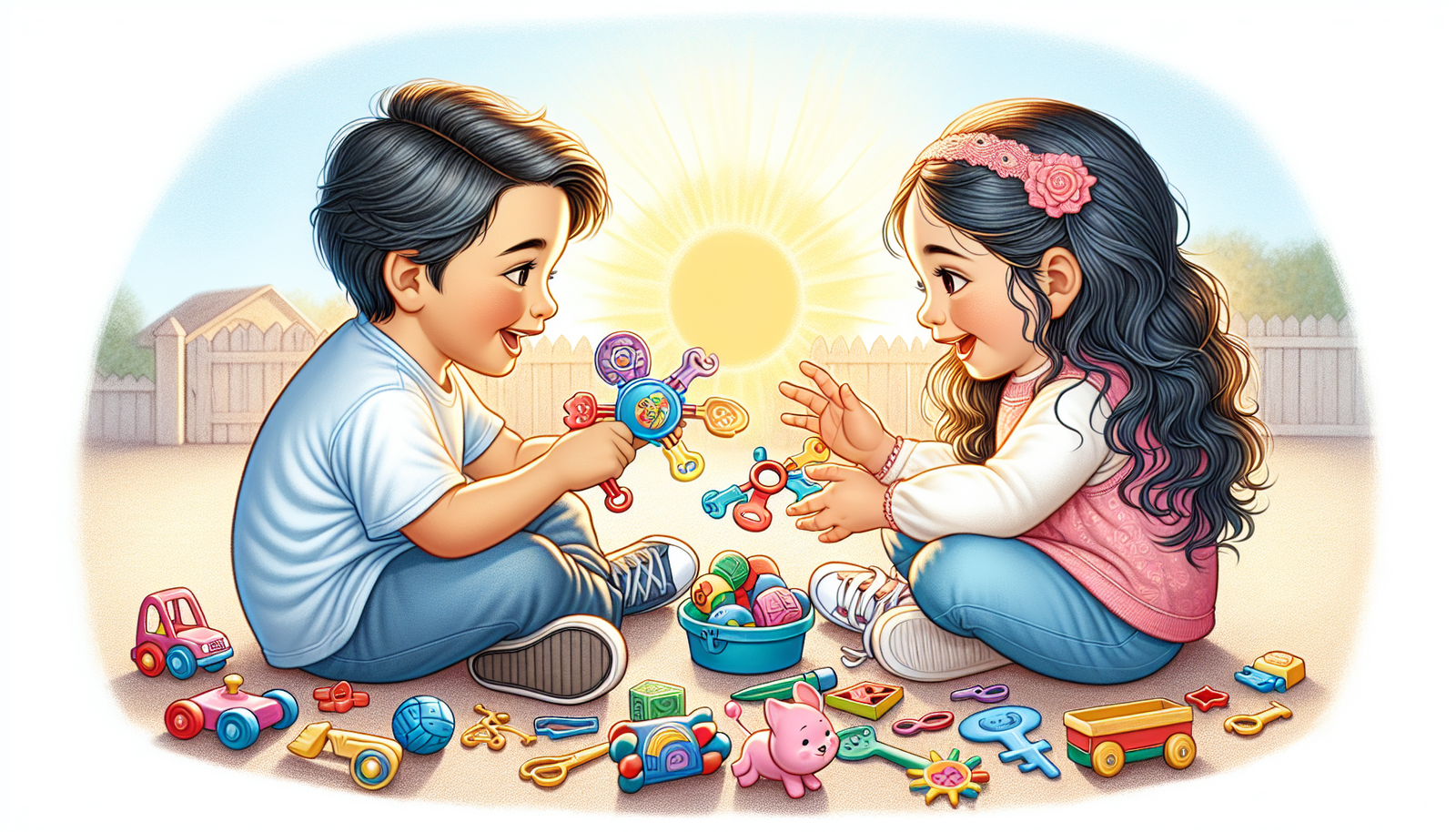A Nepo Baby is a term that refers to a child who is born into a famous or influential family in the entertainment industry. This article explores the unique experiences and challenges faced by Nepo Babies, their privileges, and the impact on their careers. It delves into the ways in which being born into a well-established family can open doors and secure opportunities, while also examining the expectations and scrutiny that accompany their privileged status. By examining the intricacies of the Nepo Baby phenomenon, this article offers insight into an often misunderstood aspect of the entertainment industry.
Origins of Nepo Baby
Cultural definitions and interpretations
The term “Nepo Baby” emerged as a cultural phenomenon, initially within the Indian context, to refer to individuals who have gained success and opportunities in various fields primarily due to their familial connections and privilege. It has now found a place in global discussions as it highlights the manifestation of nepotism in society and its impact on social mobility and meritocracy. In different cultures, the term may have variations and nuances, but the underlying concept remains the same – individuals benefiting from their family’s influential background.
Historical implications
Nepotism has a long history, dating back to ancient times when powerful families used their connections to secure positions of power and wealth for their offspring. The concept emerged as a prevalent practice during the Renaissance period in Europe when the Pope appointed his relatives to high-ranking positions in the Church. This practice allowed families to accumulate wealth and power, often at the expense of more deserving and qualified individuals. Over time, the term “Nepo Baby” has evolved to encompass individuals from diverse backgrounds and industries who have been beneficiaries of nepotistic practices.
Common misconceptions and confusions
One common misconception surrounding the term “Nepo Baby” is that it solely refers to individuals who lack talent or merit. While it is true that nepotism can result in undeserving individuals occupying positions of power, it is important to recognize that many Nepo Babies possess genuine talent and skills. The issue lies in the unfair advantage they receive through their family connections, which can limit opportunities for others who are equally or more qualified. Furthermore, there is a need to distinguish between individuals who are actively involved in perpetuating nepotism and those who find themselves benefitting from it unintentionally.
Definition of Nepo Baby
General description
A Nepo Baby is an individual who gains opportunities, privileges, and success in various spheres of life, such as the entertainment industry, politics, or business, primarily due to their familial connections and status. These individuals often have family members who already hold positions of influence or power, enabling them to secure favorable opportunities that may not be available to others solely based on their talent or qualifications.
Key characteristics
The key characteristic of a Nepo Baby is their ability to leverage their family connections to gain access to opportunities that would otherwise be difficult for individuals without such privileges. They may have access to influential networks, mentors, resources, and platforms that can significantly boost their careers or endeavors. This access often provides them with a head start or an advantage over their peers who may be equally or even more talented.
Potential variances in definition
While the core concept remains the same, the term Nepo Baby can have variances in definition depending on cultural, social, and professional contexts. In some cases, the term may be associated only with individuals in the entertainment industry, such as actors, singers, or filmmakers. In other contexts, it may extend to encompass individuals in politics, business, or other fields where familial connections play a significant role in securing positions of power or influence.
Understanding the Term Nepotism
Root origins and meaning
The term “nepotism” originated from the Latin word “nepos,” which means nephew or grandchild. Historically, it referred to the practice of favoring family members, particularly nephews or relatives, in matters of appointment or promotion. Nepotism implies giving preferential treatment to family members rather than assessing individuals solely based on their qualifications, skills, or abilities.
Different forms and aspects
Nepotism can take various forms and aspects in different domains. In the corporate world, it can involve the appointment of family members to key positions or the allocation of lucrative contracts without a fair competitive process. In the political sphere, nepotism may manifest as the passing down of power or political offices within a family lineage without due consideration for other competent individuals. It is essential to acknowledge that nepotism can exist in subtle ways, such as through the exclusion of qualified outsiders in decision-making processes or the granting of unwarranted advantages to family members.
Connection to Nepo Baby
The term Nepo Baby is closely related to the concept of nepotism, as it specifically refers to individuals who directly benefit from nepotistic practices. Nepo Babies are the recipients of favorable treatment and opportunities extended to them due to their family connections. They represent a visible manifestation of the nepotism prevalent in society, drawing attention to the impacts it has on the distribution of resources, opportunities, and social mobility.
Societal Perception of Nepo Babies
Public sentiments
The perception of Nepo Babies in society can vary widely. Some individuals may admire their achievements and view their family connections as a gateway to success. They may believe that these individuals have worked hard to prove themselves and that their familial connections have only served as a launching pad. However, there is a significant portion of the public who disapprove of the preferential treatment and inherent unfairness associated with being a Nepo Baby. This group argues that Nepo Babies contribute to the perpetuation of unequal systems and hinder social progress.
Implication in the entertainment industry
The entertainment industry, in particular, has faced significant scrutiny regarding the presence of Nepo Babies. Critics argue that the dominance of established film families within the industry prevents fresh talent from emerging and restricts diversity. This sentiment has resulted in public discourse regarding the need for fairer representation and equal opportunities for individuals from non-showbiz backgrounds. The presence of Nepo Babies in the entertainment industry has further sparked debates on how talent should be identified and nurtured.
Role in political arenas
Nepotism’s influence can also be observed within political arenas, with the prevalence of political dynasties and the continued rule of families in positions of power. This phenomenon raises questions about the principles of democracy, meritocracy, and the ability of qualified individuals from non-political backgrounds to participate in governance. Critics argue that the perpetuation of family-based politics restricts broader representation and diminishes the prospects for fresh perspectives and diverse leadership.
Stigmas associated with Nepo Babies
Nepo Babies often face stigmatization and skepticism from the public and their peers. They are occasionally perceived as unqualified or undeserving of their successes, leading to doubts regarding their capabilities and achievements. This stigma can place additional pressure on Nepo Babies to prove themselves and overcome the preconceived notions associated with their family background. The scrutiny and backlash they face can significantly impact their self-esteem and overall psychological well-being.
Influence of Nepotism on Nepo Babies
Potential benefits
Nepo Babies can experience several advantages as a result of their familial connections. They often have access to influential networks and mentors who can provide guidance and support in their chosen fields. This guidance can fast-track their careers or endeavors, exposing them to opportunities and platforms that may not be readily available to others. Additionally, their family’s established reputation and connections can act as a launchpad, opening doors and garnering valuable attention that can boost their success.
Possible challenges
While Nepo Babies may enjoy certain benefits, they can also face significant challenges. The weight of expectations placed on them due to their family legacy can be immense and overwhelming. They may be subjected to heightened scrutiny and skepticism, constantly needing to prove their competence and worthiness. The pressure to live up to their family’s reputation can result in immense stress and feelings of inadequacy. Furthermore, the perception of undeserved privilege can lead to isolation and barriers in forming genuine connections within their industries.
Role of privilege and entitlement
The influence of nepotism has deep-rooted implications regarding privilege and entitlement. Nepo Babies often grow up in an environment surrounded by wealth, resources, and opportunities. This privilege can lead to a sense of entitlement that may hinder their ability to empathize or connect with individuals who lack similar advantages. It is crucial for Nepo Babies to recognize and actively address the privilege bestowed upon them, ensuring that they engage in inclusive practices and work to uplift others who may be equally deserving of opportunities.
Impact on personal growth and development
The impact of nepotism on Nepo Babies’ personal growth and development can be multifaceted. While they may experience faster career progress and financial stability, the lack of struggle and genuine merit-based achievements can hinder their character development and resilience. They may miss out on the learning experiences that come from starting at the bottom and working their way up. This can result in a skewed sense of accomplishment and a diminished ability to handle adversity and setbacks.
Famous Examples of Nepo Babies
Individuals in Hollywood
Hollywood has witnessed numerous examples of Nepo Babies who have achieved fame and success due to their family connections. Prominent examples include actors such as Angelina Jolie (daughter of Jon Voight), Gwyneth Paltrow (daughter of Blythe Danner), and Ben Stiller (son of Jerry Stiller and Anne Meara). These individuals have established successful careers, but their familial affiliations have undeniably played a role in their initial opportunities and exposure within the industry.
Notable figures in the music industry
The music industry is not exempt from the influence of nepotism, with several Nepo Babies making their mark in this field. For instance, Liza Minnelli (daughter of Judy Garland) and Miley Cyrus (daughter of Billy Ray Cyrus) have achieved success in their respective music careers. The connections and guidance they received from their famous parents undoubtedly contributed to their visibility and early career development.
Persons in politics
The realm of politics has seen the rise of numerous Nepo Babies who have followed in their family’s footsteps. Notable examples include Justin Trudeau (son of former Canadian Prime Minister Pierre Trudeau), Chelsea Clinton (daughter of former U.S. President Bill Clinton and Hillary Clinton), and Rahul Gandhi (son of former Indian Prime Minister Rajiv Gandhi). These individuals have been thrust into the political spotlight due to their family connections and have faced both criticism and support throughout their careers.
Success stories and controversial figures
Within and beyond these industries, there are numerous success stories and controversial figures associated with being a Nepo Baby. While some individuals have successfully navigated their careers and emerged as respected professionals in their fields, others have faced backlash and criticism for the perceived lack of merit and deservingness. These diverse examples showcase the nuances and complexities surrounding the Nepo Baby phenomenon and its implications in various sectors.
Evaluation of Nepo Baby Controversy
Understanding the criticisms
The Nepo Baby controversy has attracted significant criticism due to its perceived implications on meritocracy and equal opportunity. Critics argue that the prevalence of Nepo Babies hampers social mobility and perpetuates inequality by restricting opportunities for talented individuals from less privileged backgrounds. The controversy is rooted in the belief that true success should be a result of individual merit and hard work, rather than familial connections.
Ethical considerations
The ethical considerations surrounding Nepo Babies involve questions of fairness, justice, and equal opportunity. Critics argue that nepotism undermines the principles of meritocracy by prioritizing family connections over individual qualifications. Ethical dilemmas arise in situations where deserving individuals are overlooked in favor of Nepo Babies, creating a sense of injustice and rewarding unearned advantages. It is important to engage in dialogue and reflection to determine how nepotism affects societal values and the ethical standards we strive to uphold.
Conflict with meritocracy
Nepotism exists in direct conflict with the concept of meritocracy, which promotes the idea that success should be based on individual ability and effort. By favoring individuals solely based on their familial connections, nepotism challenges the principles of fair competition and the idea that everyone should have equal opportunities to succeed. The conflict with meritocracy presents a significant challenge as societies strive to create fair and just systems that reward merit and talent, irrespective of one’s background.
Worldwide perspectives
The controversy surrounding Nepo Babies is not limited to specific countries or regions; it has sparked global discussions on social mobility, equal opportunity, and the challenges faced by individuals from disadvantaged backgrounds. Different countries and cultures approach the issue with varying perspectives and degrees of acceptance. It is crucial to study and understand worldwide perspectives to foster dialogue and work towards potential solutions that address the inherent inequalities associated with nepotism.
The Psychology of Being a Nepo Baby
Possible impact on self-esteem
Being a Nepo Baby introduces unique psychological dynamics, often resulting in complex self-esteem issues. On one hand, Nepo Babies may struggle with imposter syndrome, constantly questioning their worthiness of success and attributing it solely to their family connections. On the other hand, the external criticism and scrutiny they face may erode their self-esteem, leading to feelings of inadequacy and a pervasive fear of not meeting expectations. Striking a healthy balance between self-confidence and humility becomes paramount for Nepo Babies navigating this challenging psychological landscape.
Relationship dynamics with family
The family dynamics of Nepo Babies can vary significantly based on the level of involvement and support from their relatives. While some Nepo Babies may have healthy relationships with their families, with positive mentorship and guidance, others may face excessive pressure or unrealistic expectations, leading to strain within family relationships. The influence of familial expectations, both explicit and implicit, can shape the self-identity and personal growth of Nepo Babies, impacting their ability to forge their own path beyond their family’s legacy.
Understanding entitlement and humility
Nepo Babies are often associated with entitlement due to the privileges bestowed upon them through their familial connections. It becomes crucial for them to develop self-awareness and actively counteract any sense of entitlement they may develop. Practicing humility, acknowledging their advantages, and using their platform to uplift others can help Nepo Babies strike a balance between recognizing their opportunities and remaining grounded in their achievements.
Dealing with societal perceptions
Navigating societal perceptions and judgments can be a significant challenge for Nepo Babies. They often face skepticism, with their abilities and accomplishments being questioned due to their family backgrounds. It becomes essential for Nepo Babies to develop resilience and cultivate a strong sense of self, rooted in their talents and dedication. Utilizing their platforms to promote transparency, fairness, and inclusivity can help counteract negative perceptions and work towards a more equitable system.
Nepo Babies in Different Cultures
Western perspectives
In Western cultures, the concept of Nepo Babies is often met with varying degrees of acceptance and criticism. While some individuals view familial connections as natural and permissible avenues for securing opportunities, others argue that such practices perpetuate privilege and hinder social progress. The tension between personal achievement and the impact of family connections is a central theme in Western discussions surrounding nepotism and its implications.
Eastern perspectives
Eastern cultures, such as those in South Asia, have historically placed a significant emphasis on hierarchies and familial ties. While familial connections have been a source of pride and social cohesion, they can also contribute to perpetuating inequity and limited opportunities for others. Eastern perspectives on Nepo Babies often involve a delicate balance between valuing family bonds and working towards a fairer and more merit-based society.
Collectivistic versus Individualistic societies
The prevalence and perception of Nepo Babies can vary depending on cultural contexts, particularly between collectivistic and individualistic societies. In collectivistic societies, the emphasis on family and community often makes familial connections more acceptable and ingrained in societal structures. Conversely, in individualistic societies, where personal achievements are highly valued, the presence of Nepo Babies can be met with greater scrutiny and skepticism.
Nepo Babies in patriarchal versus matriarchal societies
The influence of patriarchal or matriarchal societal structures can impact the prevalence of Nepo Babies. In patriarchal societies, where power and opportunities are often concentrated among male family members, Nepo Babies may be more prevalent within male lineages. Conversely, in matriarchal societies, where female family members hold significant influence, Nepo Babies may be more likely to emerge within female lineages. Examining the gender dynamics within different societies helps uncover the complex interplay between familial connections and socio-cultural norms.
Addressing the Nepo Baby Phenomenon
Possible solutions
Addressing the Nepo Baby phenomenon requires a multi-faceted approach that involves systemic changes, individual awareness, and collective responsibility. Organizations and institutions must implement transparent policies and fair practices to ensure equal opportunities for all individuals. Promoting diversity, inclusion, and meritocracy in decision-making processes can help counteract the biases associated with nepotism. Additionally, fostering awareness and dialogue around the inherent disadvantages of nepotism can contribute to shifting societal norms and expectations.
Roles of institutions and organizations
Institutions and organizations have a crucial role to play in mitigating the impacts of nepotism and creating a level playing field for all individuals. They can establish clear guidelines and procedures for recruitment, promotion, and succession planning, emphasizing the importance of merit and competence. Encouraging diversity in leadership positions and providing training and mentoring programs for individuals from underrepresented backgrounds can also help address the imbalances associated with nepotism.
Suggestions for Nepo Babies
Nepo Babies themselves can play a critical role in addressing the controversy surrounding their status. They can actively engage in self-reflection, recognizing their privileges and working towards using their positions of influence to uplift others. By actively seeking out diverse perspectives, supporting newcomers, and championing equitable practices, Nepo Babies can contribute to dismantling the structures that perpetuate nepotism. Taking steps to separate personal achievements from familial connections can help pave the way for a more inclusive and just society.
Moving towards fair and just systems
For societies to move towards fair and just systems, addressing the Nepo Baby phenomenon requires an overhaul of societal norms and mindsets. It necessitates collective efforts from individuals, communities, and institutions to challenge and redefine traditional notions of privilege and success. Only through a fundamental shift in values, attitudes, and practices can we hope to create a society where opportunities are distributed based on merit rather than familial connections.
In conclusion, the term “Nepo Baby” encapsulates the complex dynamics of nepotism and its impact on social, professional, and psychological realms. The historical implications, societal perceptions, and psychological consequences associated with Nepo Babies highlight the need for critical examination and dialogue. By understanding the roots of nepotism, evaluating its implications, and striving towards fair and just systems, societies can aim to create equal opportunities and a level playing field for all individuals.

















